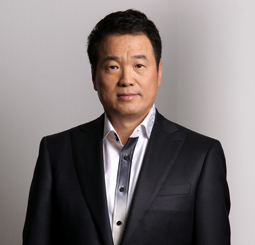Chinese investment is win-win solution in troubled times
- By Jiang Shixue
 0 Comment(s)
0 Comment(s) Print
Print E-mail
China.org.cn, September 8, 2011
E-mail
China.org.cn, September 8, 2011
|
|
|
Huang Nubo, chairman of Beijing-based Zhongkun Group [File Photo] |
Everybody has heard of the fable about the relationship between the farmer and the snake. The kind-hearted farmer, who rescues the snake after finding it perishing in the winter cold, is rewarded with a poisonous bite from the snake. What a pity!
In some ways, China is like the farmer. It is often "rewarded" with false accusations or groundless criticism when it wants to make foreign investments, either in the form of "green field" or mergers and acquisitions (M&A).
It has been reported that a Chinese investor, Huang Nubo intends to invest $100 million in Iceland to build a tourist resort, including a luxury hotel, a golf course and an eco-resort. The provisional deal is expected to cover an area of 300 square kilometers of wilderness in north-east Iceland. The announcement of the prospective deal made global headlines, not all of them kind.
The uproar is in three parts:
First, Mr. Huang is said to have worked at the Publicity Department of the Central Committee of the Communist Party and the Ministry of Construction. As a result, he is said to have an official background.
Second, critics have said that Mr. Huang wants too much land. According to the Financial Times, for instance, opponents of the investment plan have questioned why such a large amount of land, equal to about 0.3 percent of Iceland's total area, is needed for the project.
Third, opponents warned that the investment could provide cover for China's geopolitical interests in the Atlantic island nation, which is also a member of NATO. "Iceland occupies a strategically important location between Europe and North America and has been touted as a potential hub for Asian cargo should climate change open Arctic waters to shipping," the Financial Times writes.
Both Economics textbooks and real world experience tell us that an inflow of foreign investment can bring about a win-win situation for both investing countries and those receiving investment. China has benefited greatly from foreign investment over the past three decades. Now that it is an investing country, China will undoubtedly create jobs and help develop Iceland's economy.
It is really a pity that China's intentions have been misunderstood, not only in terms of investment, but also in other aspects. Over the past year or so, China has purchased bonds sold by some crisis-stricken European countries. This action should be a win-win scenario. On the one hand, it can help these countries as they plan for economic recovery; on the other, it can diversify China's huge foreign reserves. But China's benign intentions and assistance are seen by some people neither as a good thing, nor as demonstrating confidence in the Euro. Instead they are viewed as "political leverage" to be used by Beijing on such issues as the arms embargo, market economy status and the Galileo satellite system. Some even believe that China is looking to "gain more geopolitical clout so as to preempt Europe's ability to react to China on all fronts". Aren't these accusations ridiculous?
If China had done nothing about the European debt crisis, it would have been criticized for lacking sympathy. However, having now offered a certain kind of help, China is accused of having "evil intentions." So, please, tell China what it should do.
Some countries say that they welcome Chinese investment, but the investment must be made by private investors, not by public enterprises. It is reported that some Brazilians have suggested to their government that the South American country should pass laws to stop China from purchasing land with state capital. Apparently, they have forgotten what Deng Xiaoping said: "Why bother to care about the color of the cat if it can catch a mouse?"
Apart from the above-mentioned nonsense and gossip in the international media, China is often criticized for "behaving like a neo-colonialist" as it is interested only in exporting manufactured goods and importing raw materials.
This accusation fails to note that China's external economic relations in the field of investment and trade are based on the principles of mutual benefit and reciprocity. In the process of promoting its bilateral economic relationship with other nations, whether developed or developing, China never interferes in its partners' domestic affairs. Moreover, China follows international norms and bears social responsibility in mind.
China's economy has been growing at a fast rate for more than three decades. As a result of this, China will definitely make foreign investment in Europe, the Americas, Africa and elsewhere. This is an irresistible trend, and the international community should accept the fact that China will continue to play a more important role on the world stage.
French philosopher Jean-Paul Sartre once said: "They are what they are not and not what they are." In China there is a proverb which says that a knave tends to think of others in terms of his own desires. Where global economics is concerned, China's position should not be misunderstood.
The author is a columnist with China.org.cn. For more information please visit http://www.china.org.cn/opinion/jiangshixue.htm
Opinion articles reflect the views of their authors, not necessarily those of China.org.cn.







Go to Forum >>0 Comment(s)